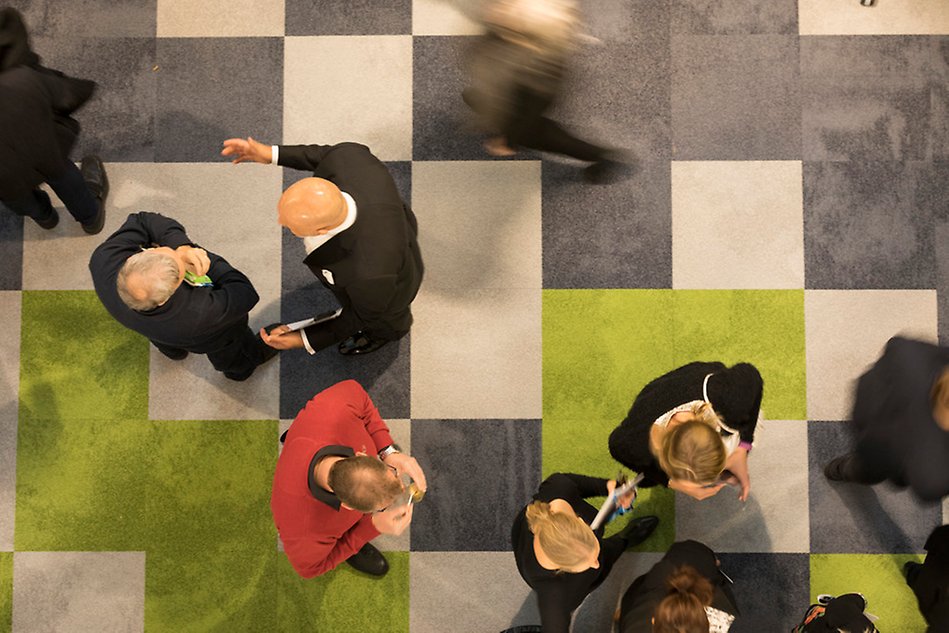About The School of Education, Humanities and Social Sciences (LHS)
The School of Education, Humanities and Social Sciences (LHS) concists of two departments and has around 100 employees.
The management, administrators, teaching staff and researchers are based in the Q building. Most teaching also takes place in the Q building, but sometimes lectures may also be held in other buildings on campus, in addition to web-based distance teaching.

Departments
The School of Education, Humanities and Social Sciences (LHS) has two departments that conduct research and education as well as innovation and collaborative activities within their respective subjects.
Organisation
Management and administration
- Dean: Anna Parkhouse
- Head of Department of Humanities and Social Sciences: Helen Fuchs External link.
- Head of Department of Education: Kalle Jonasson
- Vice Dean with responsibility for education: Jeanette Sjöberg
- Vice Dean with responsibility for research: Daniel Möller
- Academic International Coordinator: Märtha Pastorek Gripson
- Analyst, administrative researcher and international coordinator (agreements, orders, introduction for new employees, quality process, process of offered education, contract education, commissioned research): Olov Andreasson External link.
- ICT Pedagouge (Digital Laboratory Centre): Isabell Larsson
- Controller (economy): Sara Werner External link.
- Communications officer: Communications department
- Collaboration coordinator: Charlotte Berglund External link.
- Educational developer (Pedagogical resources): Kristina Wollentz, External link.
- HR specialist (staff issues): Victoria Sorling
- Finance officer (project economy): Jeanette Johansson
- Placement doordinator (VFU): David Axklev
Programme Directors
The department for Education
- Political Science – Social Analysis and Communication: Ulf Petäjä
- Culture and Societal Development: Jonnie Eriksson External link.
- Criminology and Culture: Jonnie Eriksson External link.
- Strategic Swedish – Digital Communication, Forensics and Marketing: Linnéa Bäckström External link.
The department for Humanities and Social Sciences
- Pre-School Teacher Education: Karin Davidsson External link., Cecilia Jeppsson External link.
- Primary Teacher Education – preschool class and school years 1–3: Åsa Bengtsson External link., Mattias Rundberg External link.
- Primary Teacher Education – school years 4–6: Åsa Bengtsson External link., Mattias Rundberg External link.
- Subject Teacher Education for Upper Secondary School: Rickard Melkersson External link.
- Bridging Teacher Education Programme – Secondary School: Emmy Ring External link.
- Bridging Teacher Education Programme – Upper Secondary School: Emmy Ring External link.
- Master's Programme in Digital Learning: Emma Edstrand External link. och Lars-Olof Johansson External link.
Teachers and other staff members
All staff members at the School of Education, Humanities and Social Sciences

